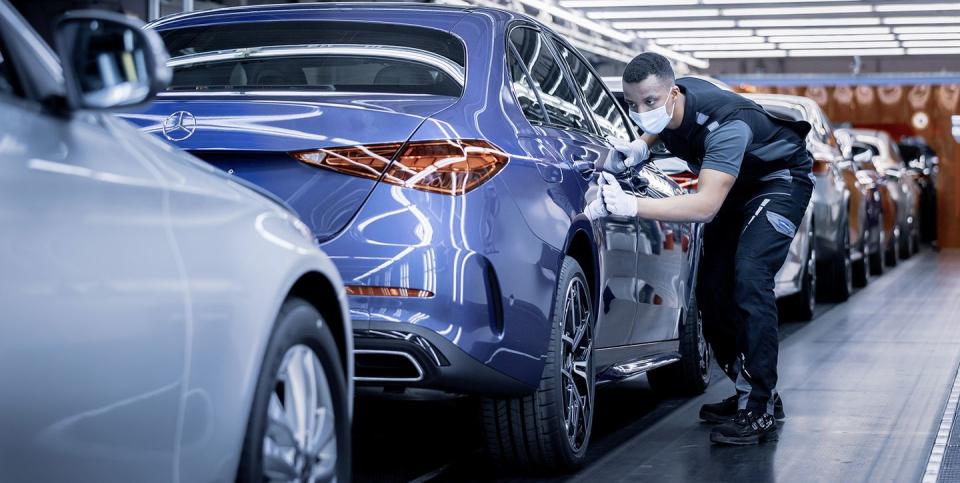Chip Shortage Keeps Causing Chaos for Automakers

Ford and Jeep announce production halts caused by the chip shortage, with a number of plants expected to idle into May.
Automakers expect the chip shortage to continue to affect the industry into late 2021, even as supplier work to boost output.
The chip shortage was prompted by plant shutdown in the early months of the pandemic, as suppliers turned to electronics manufacturers.
The chip shortage is continuing to affect the auto industry in a way that will still be felt months from now, with several major automakers still facing production stoppages due to the global chip scarcity. Earlier this week Ford indicated that it would extend a production halt at five plants in the US and Canada, one that would last two more weeks, the Wall Street Journal reported. Production of the Ford Explorer and a number of other vehicles will be affected.
Chrysler parent company Stellantis also announced an extension of plant stoppages this week in response to the shortage, announcing temporary layoffs for workers at a Jeep plant in Detroit expected to last well into May, Bloomberg reported.
Earlier this week Mercedes-Benz parent company Daimler indicated that it would halt production at two plants in Germany amid the shortage.
"The current worldwide supply shortage in certain semiconductor components affected deliveries in the first quarter. Daimler anticipates that this shortage could further impact sales in the second quarter. Although visibility is limited at present, Daimler assumes some recovery in the third and fourth quarter," the company cautioned earlier this month.
Jaguar Land Rover is also planning to pause plants in the UK this month, halting production at two of its main plants starting on April 26. The automaker did not give a restart date for the plants, though its Solihull facility is expected to continue operating without interruption.
The shortage is not confined to North America and Europe, as automakers in China are also experiencing delays in production even as the consumer auto market continues to pick up momentum.
The overall picture has not improved over the past two months, as automakers have raced to find new suppliers for crucial components. While a number of semiconductor producers have indicated they would work to boost production capacity, the results are still expected to be months away, painting a dire picture for the industry over the next several months as car sales themselves recover ahead of summer.
As a result, automakers are starting to account for semiconductor-related disruptions in their financial outlooks for the rest of the year, cautioning that the chip shortage is likely to affect the industry into late 2021 even as overall financial outlooks improve thanks to vaccination efforts and a return to car-related spending among consumers.
"Daimler expects a gradual normalization of economic conditions in the important markets," the automaker said in its first quarter statement. "The company assumes that the world economy will be able to recover from the pandemic-related weakness of the year 2020, aided by the increasing availability of effective vaccines, among other things. Based on the expected market development and the current assessments of the divisions, Daimler continues to anticipate Group unit sales, revenues, and EBIT in 2021 to be significantly above the prior year's level."
Share your thoughts on the continuing chip shortage in the comments below.

 Yahoo Autos
Yahoo Autos 